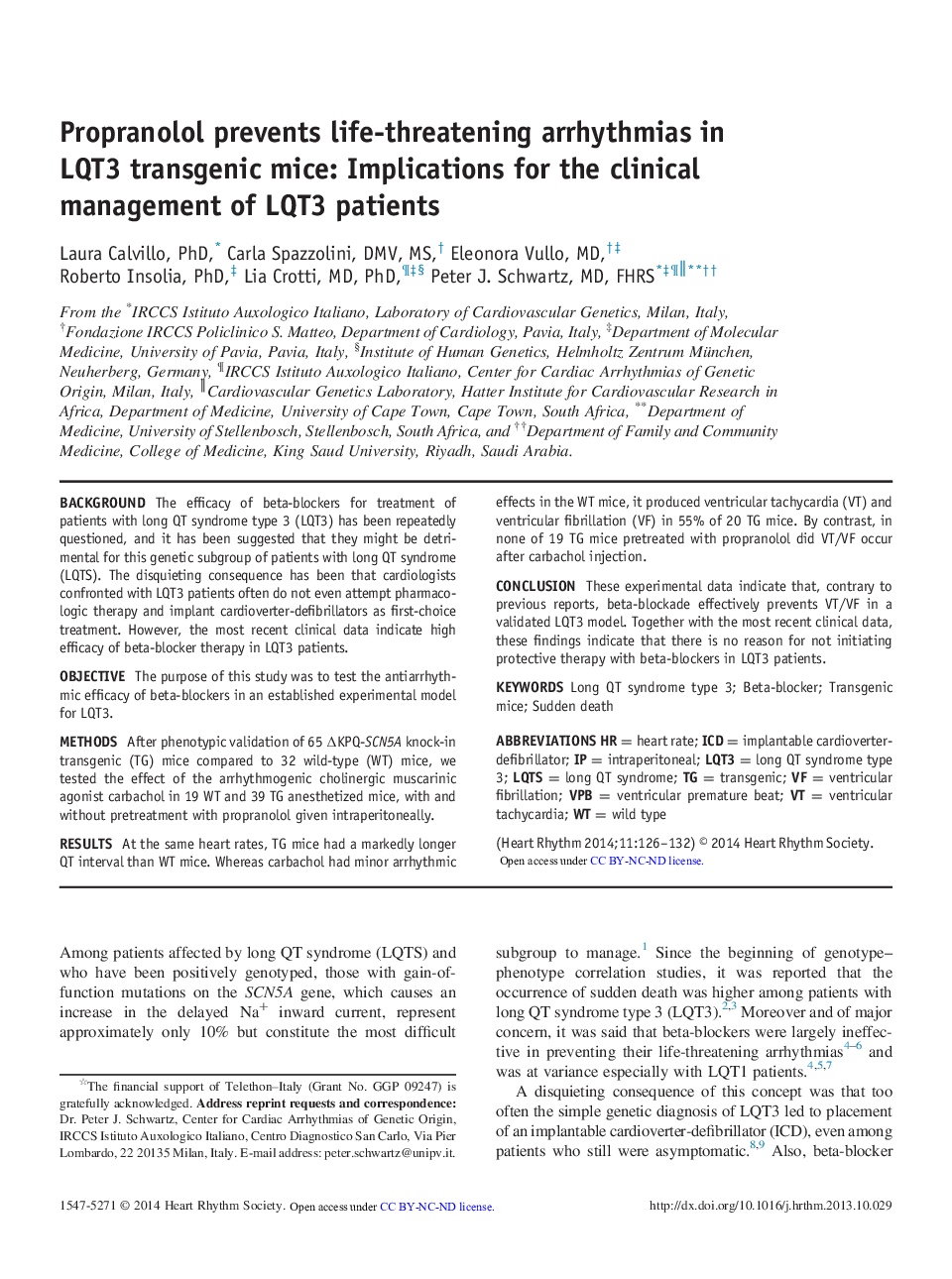| کد مقاله | کد نشریه | سال انتشار | مقاله انگلیسی | نسخه تمام متن |
|---|---|---|---|---|
| 5960289 | 1175819 | 2014 | 7 صفحه PDF | دانلود رایگان |

BackgroundThe efficacy of beta-blockers for treatment of patients with long QT syndrome type 3 (LQT3) has been repeatedly questioned, and it has been suggested that they might be detrimental for this genetic subgroup of patients with long QT syndrome (LQTS). The disquieting consequence has been that cardiologists confronted with LQT3 patients often do not even attempt pharmacologic therapy and implant cardioverter-defibrillators as first-choice treatment. However, the most recent clinical data indicate high efficacy of beta-blocker therapy in LQT3 patients.ObjectiveThe purpose of this study was to test the antiarrhythmic efficacy of beta-blockers in an established experimental model for LQT3.MethodsAfter phenotypic validation of 65 âKPQ-SCN5A knock-in transgenic (TG) mice compared to 32 wild-type (WT) mice, we tested the effect of the arrhythmogenic cholinergic muscarinic agonist carbachol in 19 WT and 39 TG anesthetized mice, with and without pretreatment with propranolol given intraperitoneally.ResultsAt the same heart rates, TG mice had a markedly longer QT interval than WT mice. Whereas carbachol had minor arrhythmic effects in the WT mice, it produced ventricular tachycardia (VT) and ventricular fibrillation (VF) in 55% of 20 TG mice. By contrast, in none of 19 TG mice pretreated with propranolol did VT/VF occur after carbachol injection.ConclusionThese experimental data indicate that, contrary to previous reports, beta-blockade effectively prevents VT/VF in a validated LQT3 model. Together with the most recent clinical data, these findings indicate that there is no reason for not initiating protective therapy with beta-blockers in LQT3 patients.
Journal: Heart Rhythm - Volume 11, Issue 1, January 2014, Pages 126-132